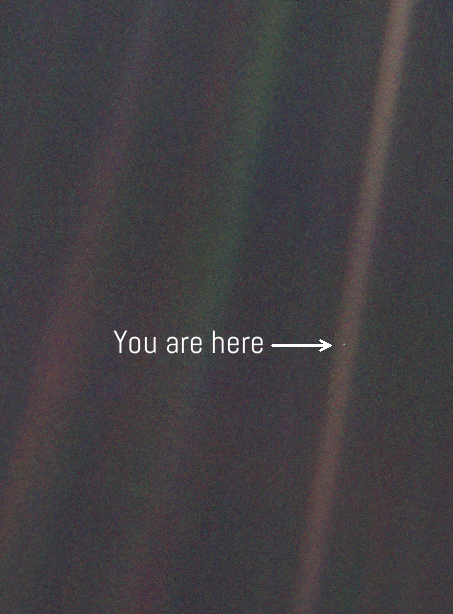Yes we are still here!
It has been many seasons since I last posted. A lot has changed over the years. Old stories end. New stories begin. As they say, "time changes everything". Priorities change.But as things change, there are still things that remain constant, remain unchanged.
Fatdog is one of them.
Fatdog is still alive. Still kicking. Still actively maintained. By the same Fatdog team. Though we don't announce every single changes that we make, updates still trickle to Fatdog package repository. Eventually, when the time comes, there will be another release.
In the meanwhile, enjoy.
No comments - Edit - Delete
Fatdog64 903 Final is released
Fatdog64 903 Final Release.Forum announcement.
You can download it from ibiblio.org, uoc.gr, or nluug.nl.
No comments - Edit - Delete
Fatdog64 902 Final Is Released
Fatdog64 902 Final Release.Forum announcement.
You can download it from ibiblio.org, uoc.gr, or nluug.nl.
No comments - Edit - Delete
Fatdog64 901 Final Is Released
Fatdog64 901 Final Release.Forum announcement.
You can download it from ibiblio.org, uoc.gr, or nluug.nl.
No comments - Edit - Delete
Fatdog64 900 Final is released
Fatdog64 900 Final Release.Forum announcement.
You can download it from ibiblio.org, uoc.gr, or nluug.nl.
No comments - Edit - Delete
Fatdog 900 Beta is released
Fatdog 900 marches along, and now the Beta release is here.Fatdog64 900 Beta Release.
Forum announcement.
You can download it from ibiblio.org, uoc.gr, or nluug.nl.
No comments - Edit - Delete
Fatdog 900 Alpha and Fatdog 814 Simultaneous Release
The long awaited release of Fatdog64 900 is now here. It is in alpha state. At the same time, we release the last, and final version of the 800 series (814).Fatdog64 900 Alpha Release.
Fatdog64 814 Final Release.
Forum announcement.
You can download 900 Alpha from ibiblio.org, uoc.gr, or nluug.nl.
And 814 Final from ibiblio.org, uoc.gr, or nluug.nl.
No comments - Edit - Delete
Fatdog64 813 is released
Release notes here, announcement (and discussions) here.Get it from the usual mirrors: ibiblio.org, uoc.gr, or nluug.nl.
No comments - Edit - Delete
Who fact-checks the fact-checkers?
In the moment of confusion, who is the arbiter of truth?Who appoints the arbiter of truth?
Or shall we speak in one voice with Pilate, who asked: "What is truth?" (John 18:38).
No comments - Edit - Delete
The Pale Blue Dot
Image of our homeworld taken from a distance of 6 billion kilometres away (approximately, 40.4 AU, or 5.5 light-hours), by Voyager 1, on 14 Feb 1990.For context, at this location, Voyager was farther than the average orbital distance of Pluto.

This is what Carl Sagan had to say about the image:
Look again at that dot. That's here. That's home. That's us. On it everyone you love, everyone you know, everyone you ever heard of, every human being who ever was, lived out their lives. The aggregate of our joy and suffering, thousands of confident religions, ideologies, and economic doctrines, every hunter and forager, every hero and coward, every creator and destroyer of civilization, every king and peasant, every young couple in love, every mother and father, hopeful child, inventor and explorer, every teacher of morals, every corrupt politician, every "superstar," every "supreme leader," every saint and sinner in the history of our species lived there--on a mote of dust suspended in a sunbeam.
The Earth is a very small stage in a vast cosmic arena. Think of the rivers of blood spilled by all those generals and emperors so that, in glory and triumph, they could become the momentary masters of a fraction of a dot. Think of the endless cruelties visited by the inhabitants of one corner of this pixel on the scarcely distinguishable inhabitants of some other corner, how frequent their misunderstandings, how eager they are to kill one another, how fervent their hatreds.
Our posturings, our imagined self-importance, the delusion that we have some privileged position in the Universe, are challenged by this point of pale light. Our planet is a lonely speck in the great enveloping cosmic dark. In our obscurity, in all this vastness, there is no hint that help will come from elsewhere to save us from ourselves.
The Earth is the only world known so far to harbor life. There is nowhere else, at least in the near future, to which our species could migrate. Visit, yes. Settle, not yet. Like it or not, for the moment the Earth is where we make our stand.
It has been said that astronomy is a humbling and character-building experience. There is perhaps no better demonstration of the folly of human conceits than this distant image of our tiny world. To me, it underscores our responsibility to deal more kindly with one another, and to preserve and cherish the pale blue dot, the only home we've ever known.
Both the image and the quote were sourced from Wikipedia. I added the arrow to point out the location of the pale blue dot. Yes, it's that small. In fact, according to NASA, it is less than a pixel.
No comments - Edit - Delete


